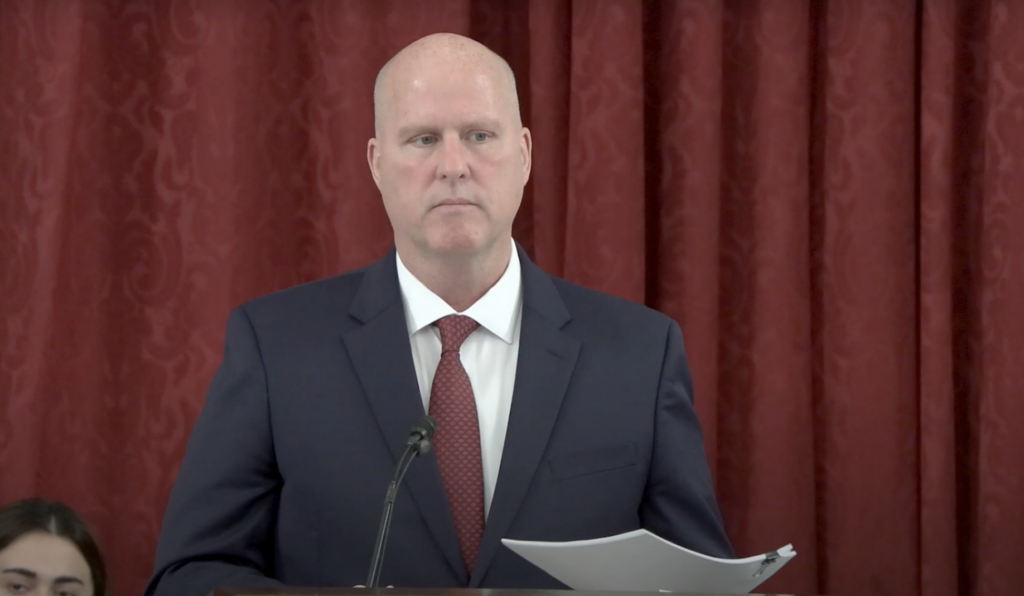July 30 was National Whistleblower Day and whistleblowers, advocates and government officials gathered on Capitol Hill to celebrate. The National Whistleblower Day event is available to rewatch on C-SPAN, but National Whistleblower Center is also rolling out videos of keynote speeches on its YouTube channel.
During his speech at National Whistleblower Day, Boeing whistleblower Ed Pierson, the Executive Director of The Foundation for Aviation Safety, an aviation industry watchdog group, revealed that he had uncovered new documents underscoring Boeing’s alleged shortcomings in the manufacturing of 737 Max planes.
“Since it’s Whistleblower Day, I thought I’d do some whistleblowing,” Pierson said, before detailing the three sets of documents he said had recently received from Boeing employees.
The first group of documents are Shipside Action Tracker or “SAT” records for the Ethiopian Airlines 737-8 MAX airplane that crashed on March 10, 2019. These SAT records are production records from the Renton, Washington factory where the plane was manufactured.
According to the Foundation for Aviation Safety’s summary of the documents, these records “paint a clear picture of the confusing and chaotic production operations going on at the 737 factory when this airplane was being manufactured. The production process breakdowns and quality control errors involving the installation of ET302’s Electrical Wiring Interconnect System (EWIS) are particularly concerning.”
During his speech, Pierson noted that “these documents have been available since before the crash… but this information was not shared with accident investigators, it was not shared with other government agencies.”
The second group of documents allegedly detail a Federal Aviation Administration (FAA) investigation into whistleblower allegations about loss of quality control at Boeing’s Electrical Systems Responsibility Center (ESRC) in Everett, Washington. According to the Foundation for Aviation Safety, the FAA’s investigation occurred the same week that the Ethiopian Airlines 737-8 MAX airplane was being manufactured in Renton, Washington.
“I just got this document recently and I realized that it matched up perfectly with the production records,” Pierson said. “So here you have people building the plane in one site, the other site rushing to deliver electrical parts. I mean think about that.”
The third group of documents allegedly consist of a Boeing report of direct communications between Boeing and Ethiopian Airlines in December 2018. According to Pierson, it is “the most damning of all.”
“Three weeks after the plane was delivered, it was coming in on approach and it was 1,000 feet above the ground on autopilot and the plane had an uncommanded roll,” Pierson explains. “The Ethiopians communicated this to the Boeing company…The document I got my hands on just recently from the Boeing employee shows that the Boeing company tells the Ethiopians ‘send us the flight data recorder information… and we’ll analyze that.’ And the Boeing company did that and they came back and they reported that they suspected an intermittent electrical fault in the wiring for that plane when it was three weeks old. That information has not been in any reports.”
According to Pierson, he spent the day before National Whistleblower Day delivering the documents to different government agencies involved in investigations into Boeing.
“Passengers and flight crews need to be informed of the ongoing safety risks,” the Foundation for Aviation Safety writes. “At a minimum, the FAA needs to urgently implement a comprehensive inspection program of Boeing airplanes that are currently in-service, and DOJ needs to investigate Boeing’s ongoing criminal coverup.”
